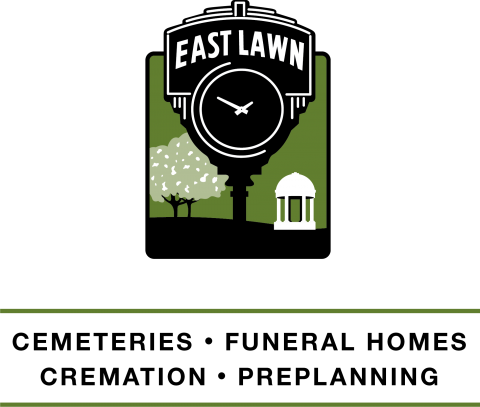Subscribe to our Newsletter!
 East Sacramento Preservation
East Sacramento Preservation- Community Meeting Announcement—Major East Sacramento Development 05/17/2025
- Tree Planting Season Wrap-Up at McKinley Park 04/13/2025
- 🌳 Volunteers Needed for McKinley Park Tree Planting! (March 29)🌳 02/19/2025
- East Lawn Memorial Park Guided Historic Walking Tours 02/08/2025
- 20 Is Plenty Lawn Sign Available 02/04/2025
Category Archives: Essays
Water
Our once verdant lawns crisp under the sun. Brown is the new green, we say bravely, and we comply with the latest regulations. On our block we can water twice a day, twice a week, Wednesdays and Sundays, before 10 a.m. and after 7 p.m. We’re all in this together, I think, as I dig a little dam around my poor, thirsty blue hydrangea which sits on a slope, and like a certain unfortunate relative, never gets enough to drink. Some suggest I replace the hydrangea with a drought-tolerant plant. But I know drought-tolerant is a euphemism for cactus, and a cactus is a dry, spikey, over-cooked thing that puts you in mind of scorpions and desiccated cow skulls.
No, the hydrangea must live. So must the small green wall of shaded plants under the eaves. I aim the water accordingly. The new rules say there must be no runoff onto the sidewalks, even if the runoff seeps into the parched roots of the berm trees. Also, no “ponding,” in case you think those little puddles that bubble up in dips are ok. The paper says city enforcers may begin night patrols. This is crazy, I think; responsible citizens don’t need to be policed for water hoarding. We’re not living in a dusty, 1956 MGM western where the townsfolk turn on one another for sneaking extra buckets from the well.
Then I take an evening walk and note that one lawn on a rather grand house is still a deep, rich green. What gives? This is a big lawn too, not a pocket-handkerchief like mine. Now I become one of the townsfolk, squinting suspiciously up and down the streets. The lawn is real grass, not synthetic turf. How can it remain green? I want answers, but am not about to call the water cops because 1) squealers are lowlife sidewinders, and 2) squealing might to stir up a mob of brown-lawn vigilantes to come with pitchforks and fright the children of the miscreants who live in the green-lawn mini-mansion.
My sister, Eileen, who lives on my block, gets a warning ticket from the water patrol. Some of her sprinkling spilled onto the sidewalk. She can pay a fine or take a Water Conservation Workshop class. We’re shocked that Eileen got busted. She was May Queen. She’s a good citizen: she keeps her property up, pays her taxes, picks up after her dog (even in the alleys), and her lawn is an appropriately withering splotch of misery. Nonetheless—busted. She opts to go to the class so she can learn something and have the fine waived. She attends an hour long Power Point and the City rep says the fines are not intended to generate revenue but rather to inspire cooperation with the new usage rules. Here are the fines: First notice-no fine; Second notice-$50.00 fine (waived if you attend workshop); Third notice-$200.00 fine; Fourth notice-$1,000 fine.
She learns, and educates us. We’re in a Stage 11 Water Contingency Plan and have to reduce use by 20% at the very least. If you request it, the city will make a “water-wise house call” on you. A city rep will walk through your house, help set your sprinklers, give you free water-saving equipment like low-flow showerheads, and will let you know if you qualify for rebates. All you have to do is go to www.SpareSacWater.org or call 311 (also the snitch line) and request a visit. During the class Eileen received a bucket to catch faucet water wasted while waiting for it to heat up, a shower timer, and a hose sprayer attachment. This is a pretty good deal and the City site is filled with useful suggestions like retrofitting toilets and washing machines. I had no idea how urgent and multi-faceted smart drought management could be, and how vital that we get on board.
Time for another evening stroll. Now I head straight for the expansive lawn. It remains illicit green. I grouse with some confederates. “It’s really a kind of outrage,” says one. “Get a rope,” I add, to fan the furor. “Get a hose,” says Eileen, and we appreciate the irony of stringing up the offenders by their own tool of wrong-doing. But we don’t call 311 and rat them out.
Late Wednesday night I go out to water. The street is dark and cooling. The next-door neighbor’s sprinklers go on. I water carefully, giving the crusty earth a light first dose it can absorb without runoff, then return to replenish it. Someone darts through the dark down the street. I call Eileen to alert her. She says maybe it’s a Ninja Waterer. This is a dramatic notion, a Ninja Waterer dressed in burglar black, leaping from plant to plant, squirting them from a portable tank carried on the Ninja’s back. Maybe soon there’ll be hundreds of Ninja Waterers in East Sac, stealthy, limber, outlaw plant heroes, rescuing the frail and the wilted. Urban Greenpeace. The nutty romance of this appeals, but the reality of our predicament is sobering. This drought is bad. The Governor says we have to conserve in every way, and even “may not stay in the shower as long as we like.”
If you trim your daily shower to five minutes you’ll save 12.5 gallons. If you turn off the faucet while brushing teeth and washing hands—ten gallons saved per day. And if you do laundry once a week in one full load you’ll save ten to fifteen gallons. It’s a drag, but it’s doable. A cousin in Missouri says people there think it’s remarkable that Californians voted to tax themselves out of their economic travails, so I guess we’re also remarkable enough shorten our long, delicious, inefficient showers.
Another evening walk. This time the rich green lawn has beginning patches of pale yellow. Aha. I hope nobody finked on them. I hope they got the message on their own.
The City calls our baked, browning, yellowing lawns gold. “Gold is the new green,” the City proclaims.
City, listen. Thank you for the many good services you render, but our lawns are not gold. Please don’t prettify reality. Our lawns are faded yellow, brown, scraggly and bleached of beauty. You know this is true, City, so say so. I’ll tell you what’s gold. Water. Liquid Gold. Some are praying for it, some hoarding it, some trying to steal it, some in court over it, and before long some will be doing rain dances for it. Most of us will hang on, scale back our use, share the burden and yearn for El Nino. It sprinkled one humid afternoon and I put a pot in the back yard to catch a few drops. All I got was mist. It’s hard to pour mist on hydrangeas. It’s going to be a long, wicked summer.
Pat Lynch
City-speak
Here’s a sentence for you. It comes from the deeps of Hell where toxic sentences smolder forever: Spring seasonal weather variations due to erratic planetary climatic shifts and wind circulation and moisture route changes due to oceanic adjustments in temperate zones can significantly alter daily and even hourly precipitation and wind currents over a specific land mass. This stupefying thing was written many years ago to explain delays in construction. It was composed by a nice person who thought she was “intellectualizing” information. She went to work for a distant municipality. I hope she doesn’t talk now the way she writes, in adulterated City-speak. I copied the sentence on an index card because I wanted to keep it as an example of how not to think, write or be. I dug it up after listening to city staff give vague, sometimes incomprehensible answers to neighbors’ questions at a planning meeting.
Take another look at the condemned sentence. Note its horrible use of due to, its repetitiveness, its ghastly meandering. Here’s how it should be written: Spring weather is changeable. Here’s how Shakespeare would have written it: “The uncertain glory of an April day.” Nobody expects city functionaries to be Shakespeare, but really, shouldn’t they climb up from that bog of obfuscation and give us simple facts?
I assume City-speak exists because the authors and speakers of this prose 1) think technical, abstract and leaden language is impressive and makes them appear to possess special, even scientific knowledge, or 2) they really don’t want you to know what they’re talking about, or 3) they don’t themselves know what they’re talking about, or 4) they’re trying to foist an injurious proposal on you.
Technical jargon rendered incomprehensible makes the listener or reader tune out. This is how Wall-marts get built across the street from your house and why you sign documents riddled with slippery clauses that escalate your costs on, say, Thursdays.
Efforts to correct this abuse of language have been around since Cicero. Shakespeare parodied it in Much Ado About Nothing, (which might also serve as an good title for some of the promises developers make). In 1946 George Orwell decried it in his terrific essay, “Politics and the English Language.” In 1979 a “Plain English Campaign” began in London to “combat gobbledygook, jargon and legalese.” On March 23rd of that same year President Carter signed Executive Order 2044 which stated that “Each regulation must be written in plain English and be understandable to those who must comply with it.” Unfathomably, President Reagan rescinded this in 1981, but a memorandum from President Clinton in 1998 revived it, with Vice President Al Gore given charge of PLAIN, the Plain Language Information and Action Network. But this is not a partisan divide. Neither party can lay claim to lucid prose; both employ focus groups and rely on them to frame positions in the most familiar and comforting language. This is why political pronouncements are so often so excruciatingly bland.
These problems, as noted, are not new. Our second president, John Adams, employed a high-minded version of City-speak that historian John Ferling describes as “turgid, legalistic jargon.” We’ll call it Elite-speak. In 1775 Adams wrote a pamphlet in which he declared, “This statum Walliae, as well as the whole case and history of that principality, is well worthy of the attention of Americans…’Nos itaque,’…” Then came an eighty-nine-word paragraph entirely in Latin. (Ferling notes that Thomas Jefferson could say the same thing, but eloquently, in two clear sentences in English). Adams was not speaking to the average citizen but to a rarefied, educated minority who were possibly impressed and flattered by the Latin. Maybe they quoted bits of it to one another to affirm their status.
Anyway, today’s new Latin can be found the specialized double-talk City-speak of an EIR (Environmental Impact Report). If you like flabby and passive language, crafted by consultants hired by developers to vindicate land acquisitions, you’ll love slogging through the droning, zombie prose of an EIR. There the writers call traffic invasion “Level of Service,” and nowhere in their report do they tell you that they assess traffic only by how many times a driver has to pause on a given route. They don’t analyze (or mention) pedestrian hazard, exhaust pollution, collisions, crashes, or gridlock. When these hired consultants say impact to depict traffic, it’s because impact is an overused word that has become so neutralized it conveys little visual imagery. They say things like, ‘Anticipated Level of Services issues will be of insignificant impact due to proposed project mitigations’—an utterly hopeless chain of common tech phrases that means a glut of traffic is coming your way and there’s nothing you can do about it. But good luck trying to get a traffic body count or lung damage report from these writers. Some people think this technical jargon impressive and its users “smart.” Others suspect that they avoid clarity on purpose. I think the doubters are smarter than those who think EIR writers are smart. The doubters know dangerous whoppers can lurk behind insensate terminology.
The EIR, for all its pretentiousness, is not an objective document. If it was an actual scientific analysis we might tolerate the specialized phraseology. But the language of science is precise. The EIR is little more than hired ad copy, dressed in dull babble to discourage us from turning the page. The same can be said of the crooked, arcane mortgages that helped topple the economy in 2007.
In the seventies a young Sacramento student, thinking she was helping to subvert a corrupt educational Establishment, made money ghost-writing term papers. A client asked for a paper on John Locke. “I’ve got all the ideas,” he said. “I just don’t have the words.”
Words. Those little things.
Because he was patronizing and dismissive she decided to educate him. She told him that ideas came in words. If you didn’t have the words, you didn’t have the ideas. She said John Locke himself thought in words.
He didn’t like hearing this, but was not equipped to argue. The paper was overdue. “Could you make it heavy?” he asked. Heavy was the seventies adjective for anything serious and consequential.
So she asked if he wanted it bloated with superfluous abstractions. After an unblinking stare he said that would be great.
He got his paper and she got a steady client for a year. He was a Business major and had a couple of teachers who tolerated mushy thinking and overloaded verbiage. The more passive and flabby the multisyllabic language, the more they liked it. The student’s theory papers could be written drunk. This customer-ghost relationship lasted until the ghost realized she had become an unregulated capitalist and quit the business. The client was dismayed. But she assured him he’d be fine: all he had to do with these two specific teachers was resubmit old paragraphs in a new order, and she was right. He graduated. Today he’s a developer-consultant in a Texas town that looks like a gargantuan spatter of mini-marts. He’s bi-lingual now. He speaks City-speak and Business-speak and repeats your name frequently when he talks to you. This is supposed to convey sincerity and create between you an intimate bubble of trust. It’s about as believable as an EIR.
I checked out the Plain Language.gov website to see if clarity was still popular with the Feds and if the battle was still on. It is, and it is. There’s “Plain Language Guidelines, Plain Language Training (yes, it has to be be taught), a Plain Language Bootcamp, Tips and Tools,” and even this startling admonition: “Plain Language—It’s the Law.” So now we know.
Hereafter when you’re assailed by jargon-spouting, double-talking, tech-term reciting, rhetoric oozing, babbling, bamboozling, pseudo-elitist City-speakers, you can tell them, plain English, please, or you’re going to Washington. To be retrained. Bootcamp. It’s The Law.
Pat Lynch
Posted in Essays
Comments Off on City-speak


















 Subscribe In A Reader.
Subscribe In A Reader. Check Us Out On Facebook!
Check Us Out On Facebook! Check Us Out On Twitter!
Check Us Out On Twitter! Visit Nextdoor!
Visit Nextdoor!








